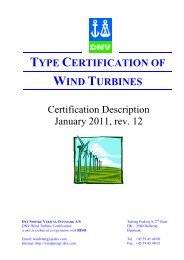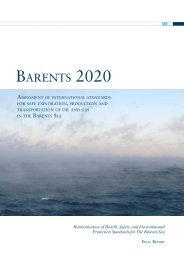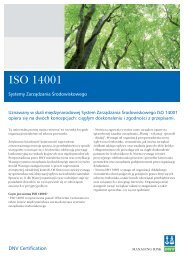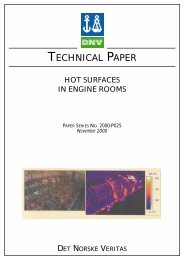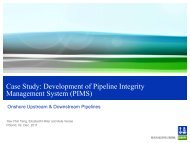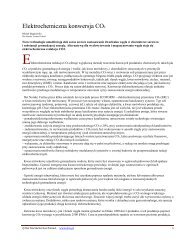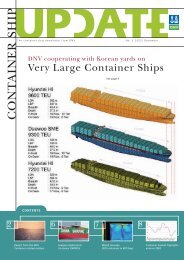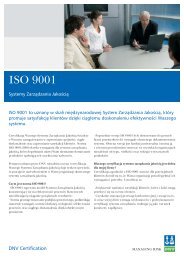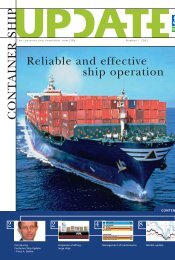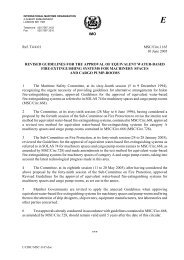phase 4 report - DNV
phase 4 report - DNV
phase 4 report - DNV
Create successful ePaper yourself
Turn your PDF publications into a flip-book with our unique Google optimized e-Paper software.
Barents 2020CONCLUSIVE SUMMARYThe Barents 2020 project commenced after theNorwegian Ministry of Foreign Affairs requested andfunded a <strong>DNV</strong> led effort to seek industry cooperationwith Russia to harmonize and agree HSE standards tobe used in the Barents Sea. It was understood that theBarents Sea represents new safety challenges for bothNorway and Russia, and that Russian cold climateexperience fruitfully could be merged with Norwegianoffshore competence.The premise of the project was that industrycooperation should look at technical standards, whichcan be used internationally. Regulations and laws arenational, and outside the remit of this project.Phase 1 – (October 2007- October 2008) – producedfive “Position Papers” and established the Norwegian– Russian partnership model for this project; <strong>DNV</strong>as Norwegian/international project manager andTechnical Committee 23 (VNIIGAZ/Gazprom) asRussian project manager. This project managementstructure has been kept throughout the project.In Phase 2 (November 2008 – March 2009)the financial industry sponsors prioritized andselected from a range of topics, seven key areas forfurther work in seven specialist working groups.In this <strong>phase</strong> the project participants agreed touse the existing safety level in the North Sea as abenchmark for the Barents Sea. With a more difficultconsequence scenario – e.g. search, rescue, and cleanup– the project concluded that an acceptable safetylevel primarily can be reached through reducingthe probability of incidents and accidents. Thisconfirmed the project focus on improving standards.The seven working groups in Phase 3 (May2009-March 2010) worked on Barents Sea01 Common offshore standards02 Ice loads03 Risk management04 Escape, evacuation and rescue05 Working environment06 Loading/unloading and ship transportation07Operational emissions and discharges to air andwaterThe common <strong>report</strong> was issued in March 2010 andincluded a list of 130 – mostly functional – standardsrecommended for common use. Many of thestandards could be used in the Barents Sea withoutrevisions, while many others would need revisions orfurther written guidance.This <strong>report</strong> – for Phase 4 (May 2010-March2012) – is the final result from the Barents 2020project. The industry sponsors – in <strong>phase</strong> 4 theywere Gazprom, Statoil, ENI, Total, OGP and <strong>DNV</strong>– agreed to bring forward from <strong>phase</strong> 3 those issuesand topics in greatest need of completion, revisionand detailed guidance. In <strong>phase</strong> 4 the projectformally became international, while there hadbeen strong international participation of specialistsalready from <strong>phase</strong> 3. Such included French,American, and Dutch specialists – just to mentionsome. All in all approximately 100 specialists from40 organizations and companies participated in<strong>phase</strong> 4.The Steering Committee has consisted of theindustry sponsors joined by Rosstandard of Russia,and Standard Norge of Norway, the two countries’ISO-representatives.The seven working groups from <strong>phase</strong> 3 werekept intact, and continued the work with renewedtasks and mandates in <strong>phase</strong> 4.Five of the seven groups (2, 4, 5, 6, and 7)were tasked with detailing, and formulatingrecommendations to fill the main deficiencies withintheir focus areas. These recommendations aresubmitted to the relevant standardization body –primarily – ISO TC 67’s 19906 standard, and to thenew TC67 Subcommittee 08, “Arctic Operations”.Independent of this, companies are free to usethe deliverables as project specific standards, andnational standardization bodies will also implementrecommendations as they see fit.Group number 1 was tasked with recommendingand guiding the process to format and channel thedeliverables and results to the correct standardizationaddresses.Group number 3 – Risk management – did notrecommend any new standards, and was taskedwith running seminars with regulatory bodiesand companies to exemplify through cases howrisk management is applied in cold climate fielddevelopments.The Steering Committee and Plenum Conferencereviewed, commented and approved the resultsin Moscow 14-15 th December 2011. This <strong>report</strong>documents the results and recommendations from allReport no 2012-0690 9


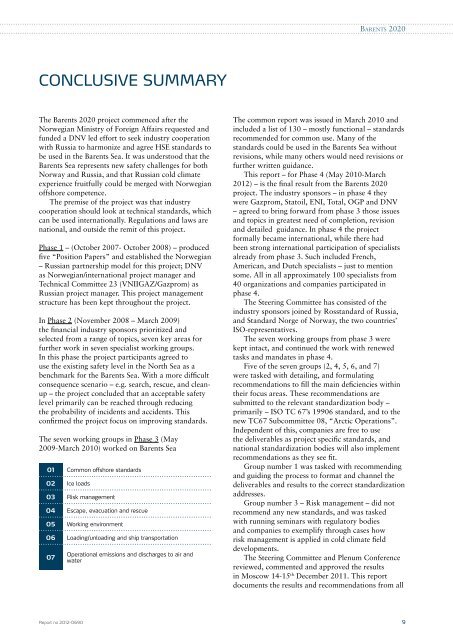
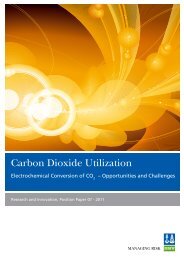
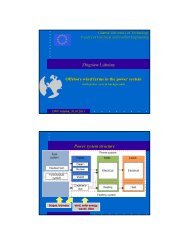
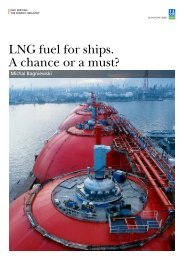
![Risk Based Pipeline Integrity Management [Compatibility Mode] - DNV](https://img.yumpu.com/50424229/1/190x146/risk-based-pipeline-integrity-management-compatibility-mode-dnv.jpg?quality=85)
